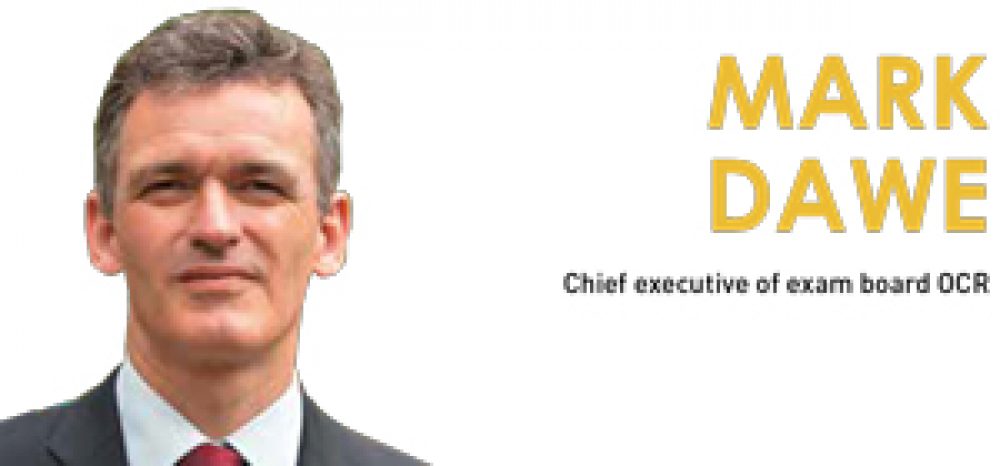Should we make the GCSE pass rate harder? Click here for schools minister Nick Gibb’s response to Mark
The numbers deemed a fail by the government at GCSE are likely to increase 15 to 20 per cent in summer 2017. That will mean a lot more resits in a system already under tremendous strain. And what about schools already struggling to meet their accountability measures?
Education secretary Nicky Morgan has confirmed that a grade 5 will be considered a “good pass” for reformed GCSEs with their new 9-1 scale. This surely means that all the new maths and English GCSEs just got harder to pass. The current grade C straddles the lower part of a grade 5 and the upper part of grade 4. In simple terms that means a group of people who would have got a C under the current system will get a 4, or a “fail” (not a good pass?) under the new system.
Various crude calculations have been put forward to suggest just how many more people won’t get a good pass in summer 2017. The predictions are all guesstimates but it looks like the numbers deemed a fail by the government are likely to increase 15 to 20 per cent. In reality these figures may prove a bit on the high side. The policy is intended to encourage teachers and students to raise their aspirations, a laudable objective that, as the introduction of the A* at A-level indicated, is certainly possible – given that we have what is often championed as the best cohort of teachers.
It would be wrong to condemn the government for wanting to raise the bar’
However, there will undoubtedly be some kind of sharp drop. This may not be the triumph of social justice for which the Department for Education hopes, but it is designed to put our educational expectations on a par with the Finns, the Canadians and the Swiss.
We have to assume the change will have significant repercussions. The new pass will presumably mean a lot more young people being consigned to re-sit English and maths as part of their post-16 studies. And that will put further strain on a system struggling to recruit and pay for enough tutors of maths and English, tutors who can find new and stimulating ways to engage young people with qualifications that they may well have developed an aversion to.
It will make it harder to reach the target the government has set itself of three million completed apprenticeships within this term of office. Indeed, it may mean that Nick Boles, the minister at the Department for Business, Innovation and Skills, will have to dust off that report he commissioned from the Education and Training Foundation just before the election that rightly described functional skills and Cambridge progression as valuable alternatives to GCSE. And the new pass will be something of a hospital pass for those schools struggling to meet their accountability measures. To be clear, Ofqual’s “comparable outcomes” methodology means that when the first new GCSEs are awarded, that national cohort will achieve much the same outcomes as previous cohorts. This is designed to ensure that, even with wholly new qualifications, the standard remains broadly the same. By keeping results the same year-on-year, comparable outcomes was always a problem for schools because Ofsted set measures that require year-on-year improvement. The new good pass will make things even harder and schools can only achieve their targets at the expense of other schools.
Of course, we could tell ourselves that what governments decide is the metric for a good pass isn’t the same thing as what employers, higher and further education will consider for recruitment purposes. Supply and demand come into the equation and not everybody will be demanding a grade 5. But many, especially employers, will struggle to know how to interpret the new grades and declarations from the government will be a powerful influence.
None of this is simple. It would be wrong to condemn the government for wanting to raise the bar and for aspiring to results that match the best in the world. But for young people caught in the middle, and for an education system caught up in a whirlwind of reform, this feels like something that should only be introduced after careful planning and modelling and widespread consultation with schools, colleges and the young people it will affect.






Mark Dawe says “Various crude calculations have been put forward to suggest just how many more people won’t get a good pass in summer 2017.”
But surely we can calculate EXACTLY what the effect will be.
The numbers of passes at each grade are going to be fixed at set numbers by OFQUAL. These numbers are designed not to change so that we “maintain standards”. So even before a single exam is sat we know what percentage of each grade there will be. We know how many students will take the exams so the calculations should be trivial.
Furthermore following on from this we can calculate how many schools will fail the government targets because by definition there have to be a certain number getting below average results. These schools will be graded by OFSTED as “Requires Improvement” and turned into Academies if they are not already Academies.
Nick Gibb is either not telling the truth, or should take a basic course in statistics. Whichever is correct one wonders if he has the skills needed to be influential in the Education Debate.
Perhaps Schools Week could commission someone to make the calculations. It is probably less than an hour’s work and might open many people’s eyes to what a charade this all is.
Well done to Mark Dawe for speaking up. I hope I am wrong, but sadly, from past experience he is likely to lose his job over this. The DfE do not like the general public knowing the truth.